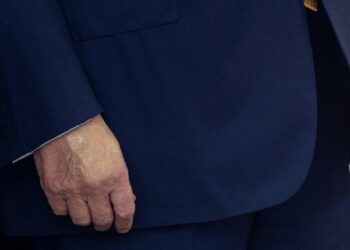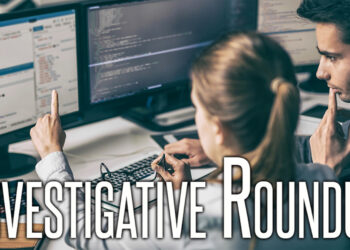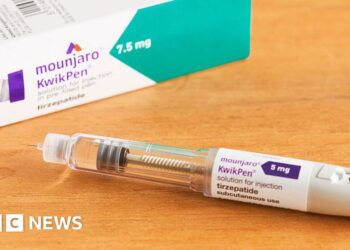The scenario plays out countless times across hospital corridors: A medical student observes an attending physician dismissing a patient’s concerns, a resident falsifying documentation, or a colleague making inappropriate comments during rounds. In that moment, the student faces a profound ethical dilemma that extends far beyond academic theory — one that can shape their entire professional trajectory and patient care standards.
The Romanell Report, published in Academic Medicine in 2015, remains a cornerstone in medical ethics education. It identified reporting incompetent or unethical behaviors by colleagues as one of the top 10 emerging ethical issues medical students must be prepared to address — a concern that remains highly relevant nearly a decade later. A 2024 qualitative study in BMC Medical Education echoed this, revealing that students often refrain from reporting due to fear of reprisal, uncertainty about what constitutes a reportable offense, and skepticism about whether institutional systems will respond effectively.
The Psychology of Professional Silence
Healthcare environments amplify the natural human tendency to defer to authority, creating unique challenges for trainees who witness concerning behavior. Brooke Keels, PhD, LPC-MHSP, LPC-Supervisor and chief clinical officer at Lighthouse Recovery Texas in Dallas, said power dynamics influence ethical decision-making in clinical settings.
“Power imbalances shape behavior in every setting, and clinical environments magnify this effect,” she said. “Residents witnessing attending physicians texting during rounds or making derogatory comments about patients and only responding with their silence isn’t surprising from a psychological perspective. The mind naturally seeks safety, and challenging authority creates a psychological threat.”
This psychological response mirrors family systems dynamics, where unspoken rules govern acceptable discourse. Medical students must navigate these implicit expectations while maintaining their ethical obligations — a process that can generate significant internal conflict.
The consequences extend beyond momentary discomfort.
“Moral distress in the part of the residents can affect their mental well-being because the med students can internalize conflicts between their values and observed behaviors,” Keels said. “The same internalization often leads to decreased empathy and increased cynicism over time as the brain attempts to resolve cognitive dissonance.”
When Ethical Obligations Collide With Career Concerns
The stakes become even higher when unprofessional behavior directly threatens patient safety. Cooper Stone, DO, a psychiatrist in Philadelphia, experienced this firsthand during residency when an attending repeatedly asked him to sign and backdate treatment plans for patients he had never evaluated.
“This was something I refused to do, and after repeated uncomfortable requests to comply, I ended up reporting this to my program,” Stone said. “As I recall, apparently this had been going on for a long time, I think for years, and had never been reported previously.”
His experience illustrates both the importance of reporting and its potential consequences.
“This, however, did not stop this attending from leaving me a terrible performance review at the end of the rotation, which I do believe was in retaliation,” Stone said.
Stone’s situation underscores a critical gap between institutional policies and practical reality. While trainees are consistently told to report unprofessional behavior, the actual process carries significant professional risks that can threaten career advancement.
The Professional Imperative to Act
The American Medical Association’s Code of Medical Ethics explicitly addresses physicians’ obligation to report concerning colleague behavior: “Medicine has a long tradition of self-regulation, based on physicians’ enduring commitment to safeguard the welfare of patients and the trust of the public. The obligation to report incompetent or unethical conduct that may put patients at risk is recognized in both the ethical standards of the profession and in law.”
This obligation extends to medical students, who occupy a unique position as both learners and patient advocates. The Romanell Report emphasizes that students must understand these ethical standards before entering independent practice, when the stakes for both patients and their careers become even higher.
However, the traditional approach of simply instructing students to “do the right thing” fails to acknowledge the complex psychological and professional dynamics at play. Effective ethics education must address both the moral imperative and the practical challenges students will face.
Creating Psychological Safety for Ethical Action
Addressing unprofessional behavior requires more than individual courage — it demands institutional structures that support ethical decision-making. Keels emphasizes the need for systematic approaches that acknowledge human psychology.
“Creating psychological safety for residents requires intentional effort from leadership,” she said. “Medical institutions need structures that acknowledge the brain’s threat-response when witnessing unprofessional behavior. Anonymous reporting systems can work because they bypass the social threat of direct confrontation.”
These systems must extend beyond mere reporting mechanisms to include robust protections against retaliation and clear pathways for resolution. Without such safeguards, well-intentioned students may choose silence over ethical action, perpetuating problematic behaviors and compromising patient care.
Long-Term Consequences of Ethical Compromise
The impact of witnessing unprofessional behavior without adequate response mechanisms extends far beyond individual cases. Keels warned that “med students repeatedly suppressing their ethical concerns can harm current patient care and shape how future doctors will normalize concerning behaviors to keep the status quo.”
This normalization process represents a fundamental threat to medical professionalism. When students learn to rationalize unethical behavior as acceptable or inevitable, they carry these compromised standards into their own practice. The result is a gradual erosion of professional values that can persist throughout entire careers.
Research supports this concern, demonstrating that early exposure to unprofessional behavior without appropriate intervention can lead to decreased empathy, increased cynicism, and compromised patient care quality among practicing physicians.
Practical Guidance for Medical Students
Despite the challenges, experts emphasize that students must maintain their ethical obligations while protecting their professional futures. Stone’s advice remains straightforward: “Do the right thing. Every time because it’s the right thing to do. And make sure you do it in writing.”
This approach requires careful consideration of available resources and reporting mechanisms. Students should familiarize themselves with their institution’s policies regarding unprofessional behavior, including anonymous reporting options and anti-retaliation protections.
Documentation becomes crucial when witnessing concerning behavior. Detailed, contemporaneous notes about specific incidents provide essential evidence, should formal reporting become necessary. Students should record dates, times, individuals involved, and precise descriptions of observed behavior.
The Path Forward
Medical education must evolve to better prepare students for these complex ethical scenarios. The Romanell Report’s identification of colleague reporting as a critical competency represents an important first step, but implementation requires comprehensive institutional support.
Effective programs should include scenario-based training that allows students to practice navigating ethical dilemmas in safe environments. These simulations should address both the decision-making process and the practical aspects of reporting, including documentation requirements and available resources.
Equally important is the development of institutional cultures that genuinely support ethical behavior. This requires leadership commitment, transparent reporting processes, and consistent consequences for unprofessional conduct regardless of hierarchical position.
The ethical dilemma facing medical students who witness unprofessional behavior reflects broader challenges within healthcare culture. While individual courage remains essential, systemic changes are necessary to ensure that ethical action becomes the norm rather than the exception. Only through such comprehensive approaches can medical education fulfill its obligation to prepare students for the complex moral landscape they will navigate throughout their careers.
For hospitalists supervising medical students and residents, recognizing these dynamics becomes crucial for fostering ethical development and maintaining professional standards. The goal is not merely compliance with reporting requirements, but the cultivation of physicians who will consistently prioritize patient welfare throughout their careers.
Source link : https://www.medscape.com/viewarticle/when-medical-students-witness-unprofessional-behavior-2025a1000fvx?src=rss
Author :
Publish date : 2025-06-13 10:20:00
Copyright for syndicated content belongs to the linked Source.









